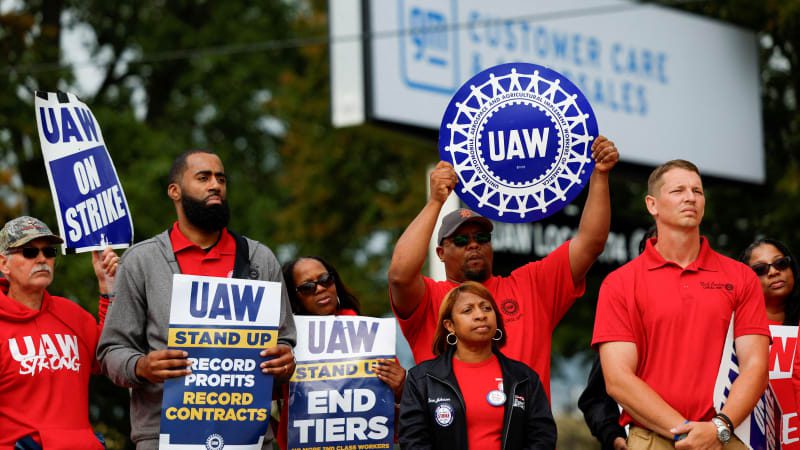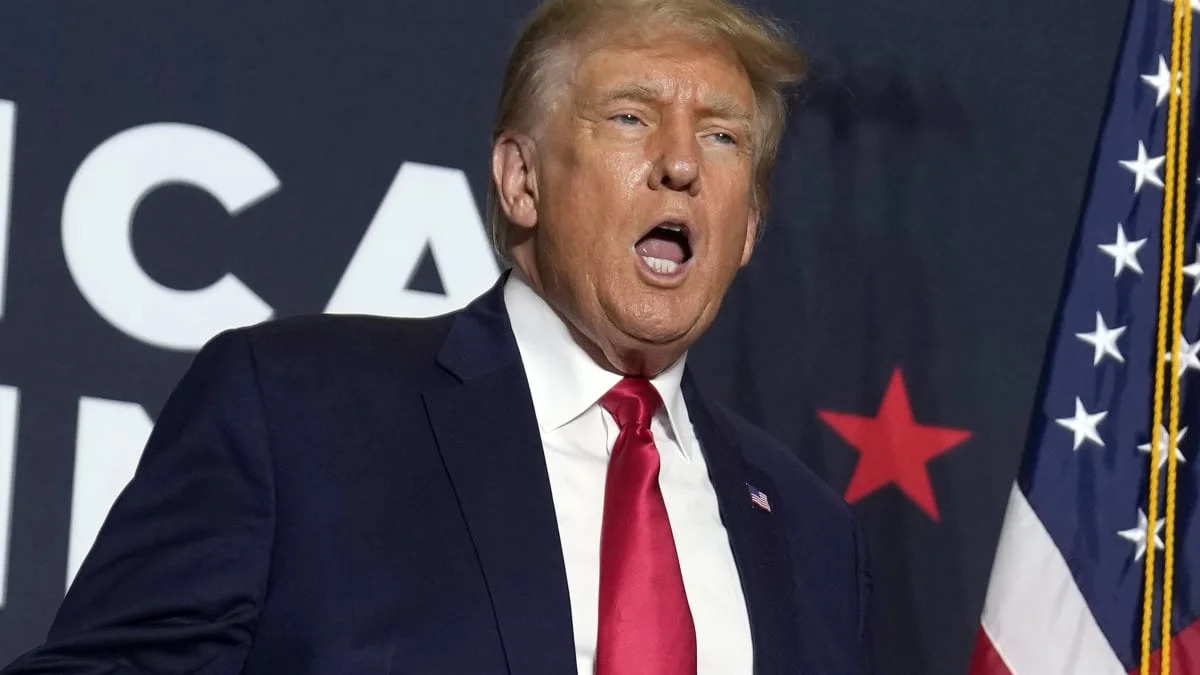UAW's Fain to expand strike on Friday if no progress; Trump to visit after Biden

There’s plenty of news is coming out of Detroit as the United Auto Workers (UAW) stand-up strikes enter their 13th day.
A UAW source confirms to Yahoo Finance that union President Shawn Fain will expand his “stand-up” strike strategy this Friday at 10 a.m. ET if no major progress has been made in talks with the Big Three. Last Friday, Fain and the UAW expanded their strikes to 38 GM and Stellantis parts and distribution facilities, sparing Ford because the UAW said it had made some progress with the Dearborn-based automaker.
News of a possible strike expansion comes as former President Donald Trump will set foot in Michigan following a historic visit by President Biden to the UAW picket line. On Tuesday, Biden met with UAW picketers at GM’s Van Buren Township parts distribution center in Michigan. “Wall Street didn’t build this country; the middle class built this country. The unions built the middle class,” Biden said to UAW workers on strike. “Let’s keep going. You deserve what you’ve earned. And you’ve earned a hell of a lot more than you’re getting paid now.”
Biden also said that the UAW should fight for the 40% pay hike it had asked for, despite Big Three pleas that higher labor costs would make their cars uncompetitive in the marketplace.
Of course, Tesla CEO Elon Musk — no fan of Ford, GM, and Stellantis — weighed in. He said a 40% pay hike would be bad for his Big Three competition and lead to their eventual “bankruptcy.” That’s not a surprising take from Musk given his past anti-union views.
Nonetheless, for the UAW, Biden’s visit brought a huge spotlight to its labor fight, with the union and its president Shawn Fain effectively embracing Biden ahead of the visit by Trump.

Trump is expected to hold a rally with 500 former or current union members in Clinton Township, Mich., shunning the GOP debate occurring at the same time on Wednesday night in California. Ironically, Trump is holding his event at non-union auto supplier Drake Enterprises, per Michigan’s AFL-CIO.
This led to Fain noting his disgust once again for Trump’s Michigan visit. “I see no point in meeting with him because I don’t think the man has any bit of care about what our workers stand for, what the working class stands for,” Fain said to CNN on Tuesday. “[Trump] serves a billionaire class and that’s what’s wrong [with] this country.”
Ford vs. GM — with a side of Bidenomics
Meanwhile, tax credits, of all things, emerged as a backstory as talks crawled along between the UAW and the Big Three with no end in sight.
Earlier this week Ford surprised the industry when it announced that it was pausing development on its $3.5 billion battery plant in Marshall, Mich., claiming it had concerns about “competitively” operating the plant.
The UAW immediately attacked this potential loss of a new plant, which would have employed 3,500 UAW workers, as a “thinly veiled threat by Ford” to cut jobs while negotiations were going on for a new contract.
Ford declined to say what specifically changed in its planning, but the company stated it has not made a final decision on the planned investment at the site.
But new reporting from the Wall Street Journal is shedding light on what may have happened.
Ford, as previously reported, is partnering with China’s CATL to license CATL’s lithium iron phosphate battery tech for new EVs. This is not a popular move with politicians in Washington and Republicans in the state of Michigan, who believe this is a backdoor for China to get access to EV tax credits and US technology.
The Journal reported Ford is seeking a looser interpretation of the “foreign entity of concern” requirement for battery components, which puts limits on materials and technology coming from countries like China in order to qualify for tax credits authorized by the Inflation Reduction Act. The final interpretation of the rules is expected to come from the White House this fall for EVs sold in 2024.
Ford believes that interpretation would allow it to license CATL’s battery technology. But behind the scenes, GM (GM) reportedly has been arguing for a stricter interpretation of the rules to deal a blow to its crosstown Detroit rival.
GM execs told White House officials that if consumers can use the tax credit to buy cars that CATL helps Ford make, GM and other automakers would be at a competitive disadvantage, sources told the Wall Street Journal.
The confluence of factors, such as the high cost of EVs and lobbying by two rivals over the integration of government rules, is now part of the backdrop of the UAW’s fight with the Big Three — further clouding the future of the American auto industry.
Pras Subramanian is a reporter for Yahoo Finance. You can follow him on Twitter and on Instagram.
Click here for the latest stock market news and in-depth analysis, including events that move stocks
Read the latest financial and business news from Yahoo Finance



